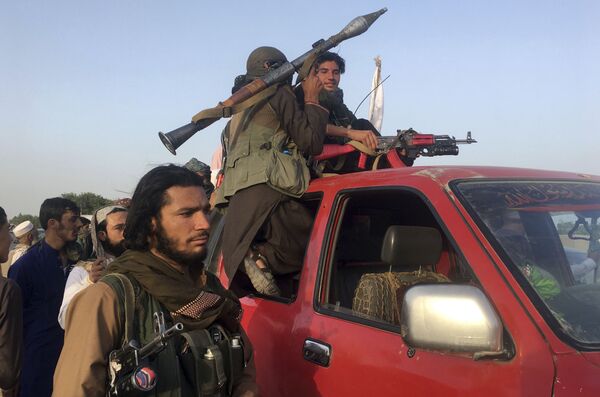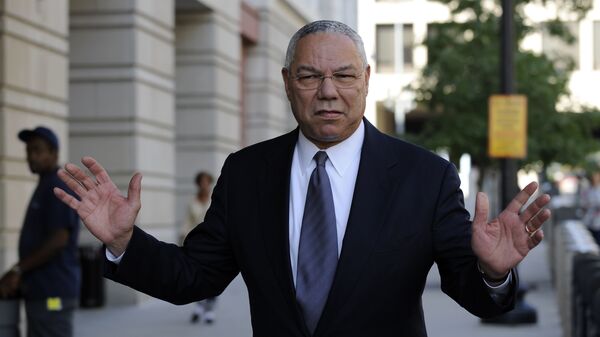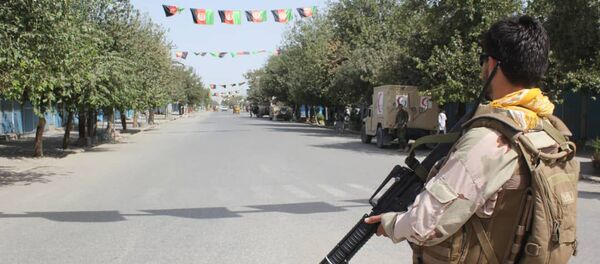Former Secretary of State Colin Powell has made it clear that the US media overreacted to last month’s New York Times report about alleged collusion between Russia and the Taliban in Afghanistan.
"What I know is that our military commanders on the ground did not think that it was as serious a problem as the newspapers were reporting and television was reporting. It got kind of out of control before we really had an understanding of what had happened. I’m not sure we fully understand now,” Powell pointed out in an interview with the US news network MSNBC on Thursday.
He referred to Marine Corps General Kenneth McKenzie, the commander of US Central Command, who Powell said "did not think this was of that level of importance to us”.
"[…] That has to be analysed. It has to be attested. And then you have to go find out who the enemy is. And I think we were on top of that one, but it just got — it got almost hysterical in the first few days,” the ex-Secretary of State added, in an apparent nod to the mainstream US media outlets’ reaction to the report.
No Proof of Russia-Taliban ‘Collusion’, Top US General Says
The interview came as Chairman of the Joint Chiefs of Staff General Mark Milley said, when testifying before congress earlier on Thursday, that the US has no direct evidence of the alleged Russian bounties being offered to Taliban militants to kill US soldiers.
“If, in fact, these bounties [were] directed by the government of Russia or any other institution to kill American soldiers - that is a big deal. We do not have this level of fidelity yet, but we are still looking,” he added.
Milley urged the congressmen from the US House Armed Services Committee to understand the big difference between “arming and directing”.
“We know about arms, weapons, we know about support. In the case of the Russians, we do not have concrete collaborating intelligence evidence to show directing. That is a big difference”, he stressed.
Russia Rejects ‘Unfounded’ Afghanistan Bounties Report
The statement followed the Russian Foreign Ministry rejecting last week's “unfounded allegations” about the Russian-Taliban "collusion", stressing that “we need evidence” of it, “but there is no such proof”.
This was preceded by Russian Ambassador in Washington Anatoly Antonov stressing in late June that the collusion claims are a lie aimed at disrupting “normal, mutually respectful dialogue between Russia and the United States”.
House of Representatives Intelligence Committee Chairman Adam Schiff, for his part, said at the time that Washington should consider imposing additional sanctions against Russia in light of the collusion allegations.

Earlier in June, The New York Times, as well as a spate of other US media outlets, such as The Washington Post and CNN, cited unnamed sources as saying that President Donald Trump had been presented with an intelligence report claiming that Russia could have paid bounties to Taliban-linked militants to assassinate US and coalition troops in Afghanistan.
The allegations were also earlier rejected both by Moscow and the Taliban, with the Kremlin slamming the reports as "nonsense" and the militant group noting that its actions are not related to foreign intelligence agencies or governments. The Taliban also described the reports as an attempt to obstruct the withdrawal of US troops from Afghanistan.
In February, Washington and Taliban militants signed a peace deal that concluded rounds of talks aimed to launch the reconciliation process in Afghanistan after almost two decades of armed conflict and insurgency. In one of the latest developments, Special Representative for Afghanistan Zalmay Khalilzad said that intra-Afghan talks were closer than ever after Kabul and the Taliban carried out a significant exchange of prisoners.
*The Taliban is a terrorist organisation banned in Russia and many other states




